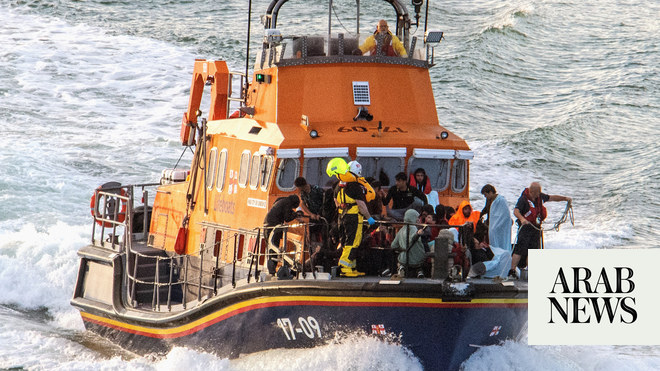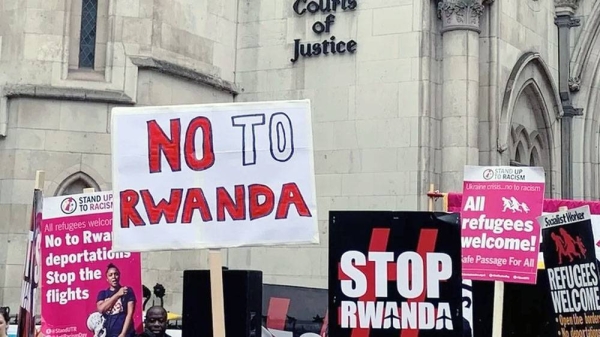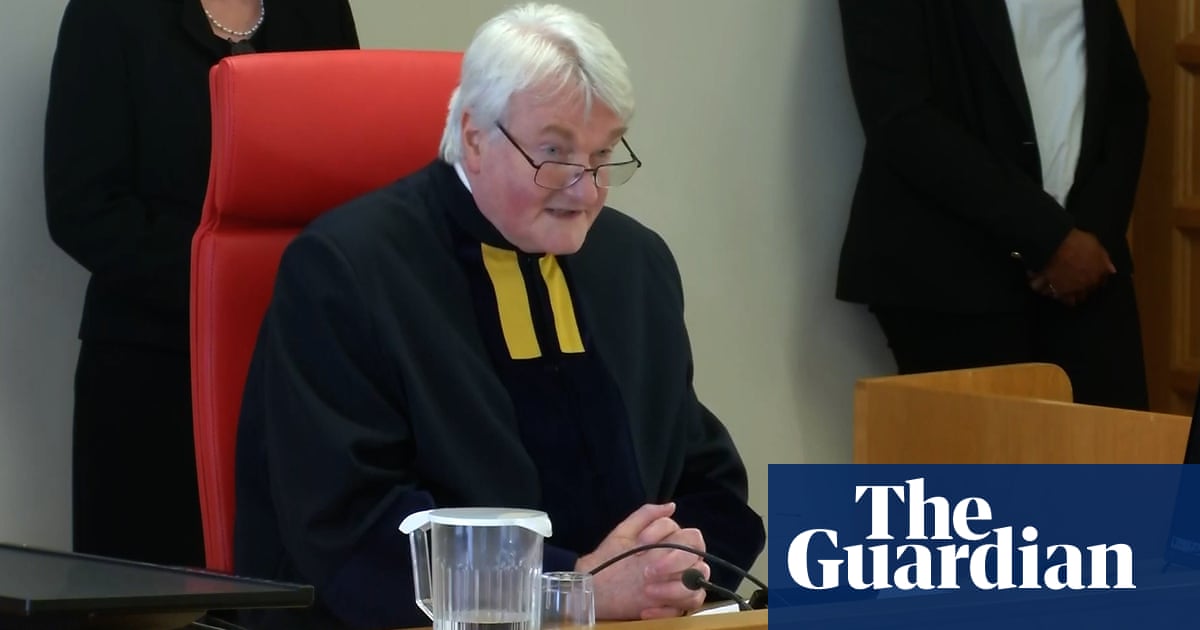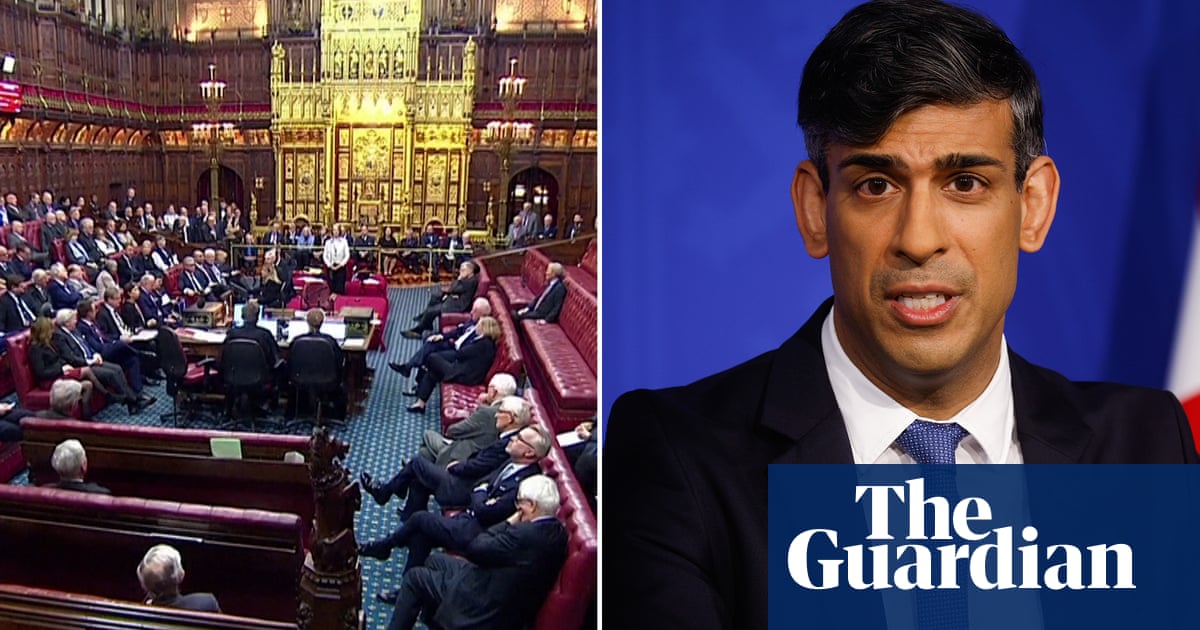
LONDON: The British government’s contentious policy to stem the flow of migrants faces one of its toughest challenges this week as the UK Supreme Court weighs whether sending asylum-seekers to Rwanda is lawful.
The Conservative government is challenging a Court of Appeal ruling in June that said the policy to deter immigrants from risking their lives crossing the English Channel in small boats is unlawful because the East African country is not a safe place to send them.
Three days of arguments are scheduled to begin on Monday, with the government arguing its policy is safe and lawyers for migrants from Vietnam, Syria, Iraq, Iran, and Sudan contending it’s unlawful and inhumane.
The hearing comes as much of Europe and the US struggle to cope with migrants seeking refuge from war, violence, oppression, and a warming planet that has brought devastating drought and floods.
Prime Minister Rishi Sunak has vowed to “stop the boats” as a top priority to curb unauthorized immigration. More than 25,000 people are estimated to have arrived in the UK by boat as of Oct. 2, down nearly 25 percent from the 33,000 crossing at the same time last year.
The policy is intended to stop the criminal gangs that ferry migrants across one of the world’s busiest shipping lanes by making Britain unattractive because of the likelihood of being given a one-way ticket to Rwanda.
The consequences of the crossing have been deadly. In August, six migrants died, and about 50 had to be rescued when their boat capsized after leaving the northern coast of France.
In November 2021, 27 people died after their boat sank.
The government claims the policy is a fair way to deal with an influx of people who arrive on UK shores without authorization and that Rwanda is a safe “third country” — meaning it’s not where they seek asylum.
The UK and Rwandan governments reached a deal more than a year ago that would send asylum-seekers to the East African country and allow them to stay there if granted asylum.
So far, only a few people have been sent there as the policy has been fought over in the courts.
Human rights groups have argued it’s inhumane to deport people more than 6,400 km to a place they don’t want to live.
They have also cited Rwanda’s poor human rights record, including allegations of torture and killings of government opponents.
A High Court judge initially upheld the policy, saying it did not breach Britain’s obligations under the UN Refugee Convention or other international agreements.
But that ruling was reversed by a 2-1 decision in the Court of Appeal that found that while it was not unlawful to send asylum-seekers to a safe third country, Rwanda could not be deemed safe.












